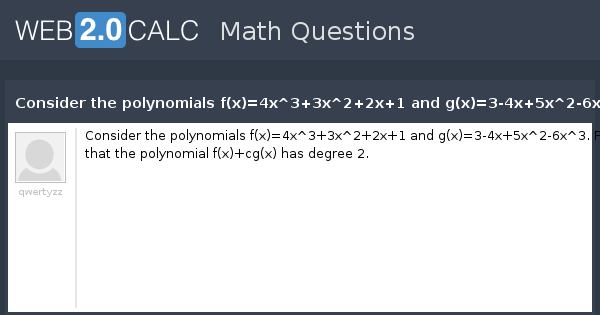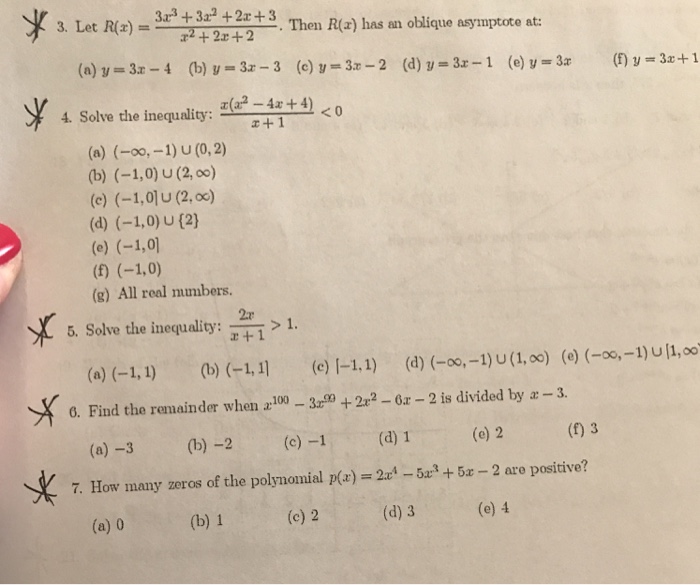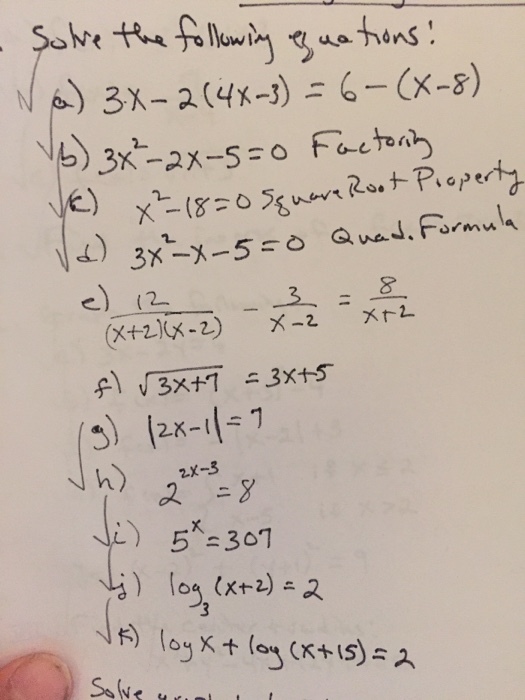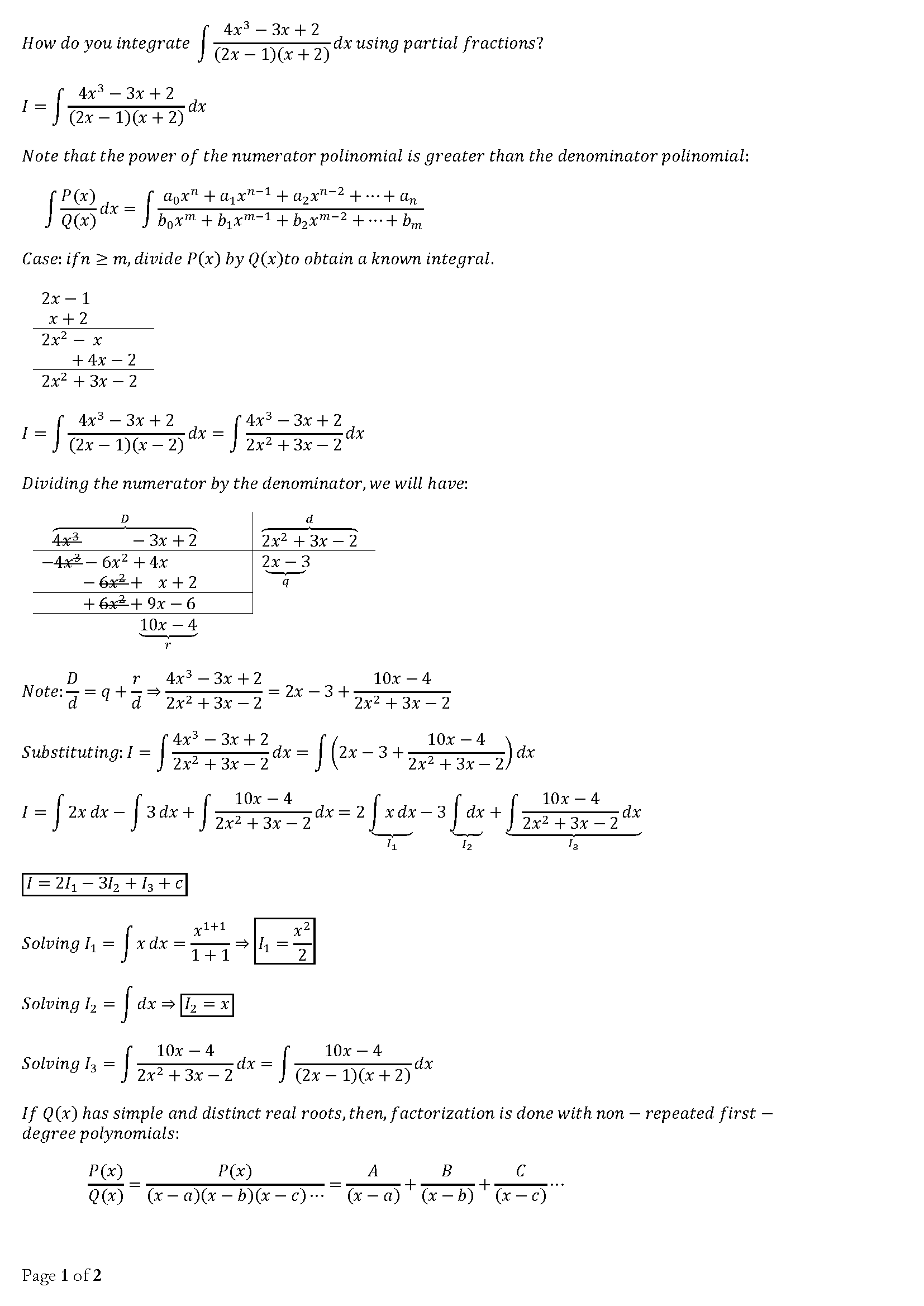The function f(x) = (4x^3-3x^2)/6 - 2sinx + (2x - 1) cos x: - Sarthaks eConnect | Largest Online Education Community

On dividing the polynomial p(x) = 5x4 -4x3 + 3x2 - 2x + 1 by another polynomial g(x) = x2 + 2, if the quotient is ax2 + bx + c, find a, b and c. - 3osk2prr
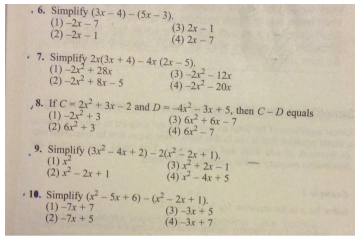
Solved) - 6. Simplify (3x - 4)-(5x -3). (1)-2r 7 (2) -2x -1 (3) 2x -1 (4)... (1 Answer) | Transtutors

Consider the polynomial f(x)=1+2x+3x2+4x3. Let s be the of all distinct real roots of f(x) and t=|s|, then the f′(x) is?

The function `f(x)={ 1-2x+3x^2-4x^3; x!=-1, 1; x=-1}` discuss the continuity and differenti... - YouTube
Evaluate the integral: ∫(x - 1)/(3x^2 - 4x + 3) dx - Sarthaks eConnect | Largest Online Education Community

If f(x)= x 4 -4x 3 +3x 2 -2x+1, then find whether f(0)X f(-1)=f(2) - Maths - Polynomials - 12751499 | Meritnation.com
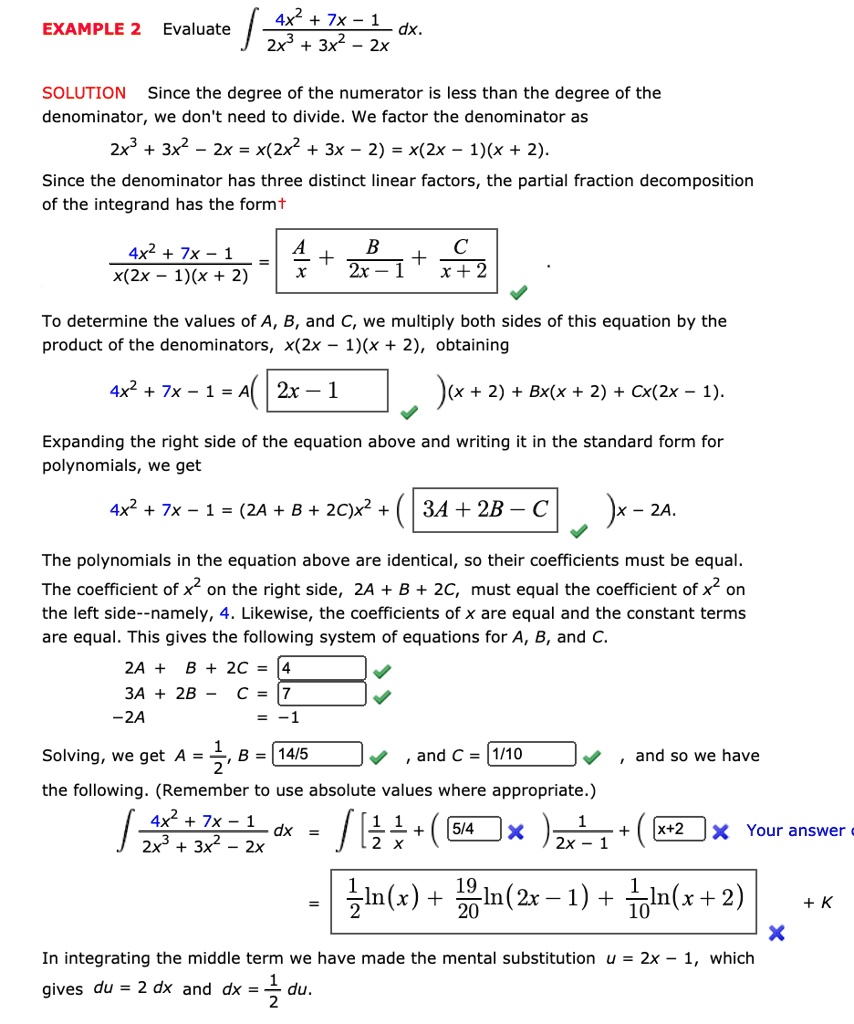
SOLVED: 4x^2 + ZX - 1 dx 2x^3 + 3x^2 - 2x EXAMPLE 2 Evaluate SOLUTION: Since the degree of the numerator is less than the degree of the denominator, we don't
